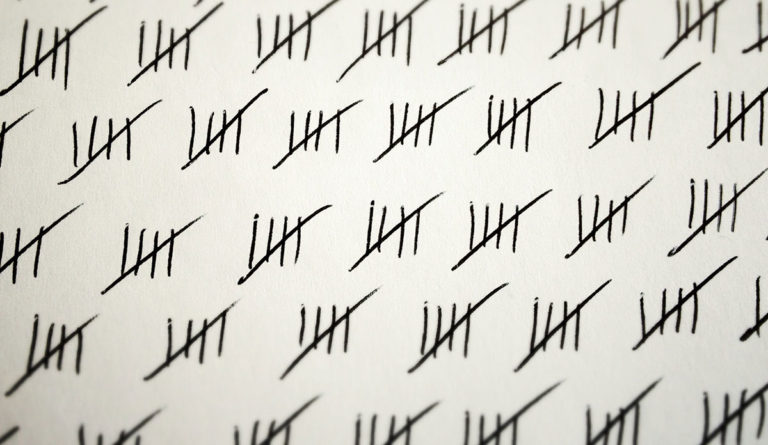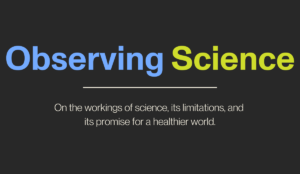If They Don't Count Us, We Don't Count
The collection of population-level data on sexual orientation and gender identity are extremely important to better understand the experiences of LGBT Americans. Momentum on adding these questions to surveys appears to have ground to a halt under the Trump-Pence Administration.

Read Time: 6 minutes
Published:
Brave homosexual activists in the 1950s and 1960s spoke of the need to break the silence and be visible. This meant fighting back after being fired from their jobs for being gay—like Frank Kameny did in 1957. It meant organizing protests against anti-gay job discrimination in front of the White House and at the Liberty Bell in the mid-1960s, like Kameny and Barbara Gittings did. It meant appearing on radio shows and speaking as openly gay or lesbian people. Breaking the silence often came at a high cost—losing relationships with family, and losing one’s job or home.
Our culture and society has changed a great deal since the 1960s, but visibility is still essential for public health. Disclosure of a patient’s sexual orientation to health care providers can enable preventive screenings such as HIV/STI screening among gay and bisexual men. For decades now, researchers and activists have promoted adding sexual orientation (SO) and gender identity (SOGI) questions to federal surveys to capture health and demographic data about lesbian, gay, bisexual, and transgender (LGBT) people. Under the Obama-Biden Administration the number of federal surveys and studies measuring sexual orientation increased to 12; seven of these also measure gender identity or transgender status.
SOGI data are now included in many public health surveys, such as the Behavioral Risk Factor Surveillance System (SOGI) and Youth Risk Behavior Survey (SO), the National Health Interview Survey (SO question), the National Survey on Drug Use and Health (SO), and the Health Center Patient Survey (SOGI). Several other surveys are now collecting SOGI data that examine social determinants of health, such as the National Crime Victimization Survey (SOGI), which collects data on intimate partner violence, and the National Inmate Survey (SOGI), which collects data on sexual assault in prison as mandated by the Prison Rape Elimination Act.
The collection of population-level data is extremely important to better understand the experiences of LGBT Americans. LGBT people, especially Black gay and bisexual men and transgender women, experience a disproportionate burden of bias-motivated hate violence. On a per capita basis, LGBT people are more likely to be targets of hate crimes than any other group in America. Bisexual women and men, and lesbians, are more likely to experience intimate partner violence than heterosexual women and men. Gay men are 11 times as likely as heterosexual men to be sexually assaulted in prison. Bisexual men and transgender people are 10 times as likely to be sexually assaulted in prison as heterosexual men.
The Administration on Aging added a sexual orientation question, and a follow-up question that can measure transgender status, to the National Survey of Older Americans Act Participants in 2014, and collected such data in 2015 and 2016 as well. This survey collects data on participation in Older Americans Act (OAA)-funded programs, such as senior centers, home care assistance, and congregate meal programs. Collecting data on LGBT older adults and the extent to which they access elder services is important, as many older LGBT people experience prejudicial treatment from heterosexual age peers or from service providers, or fear they will experience such treatment based on past experiences of discrimination. As a result, LGBT older adults may be less likely to access senior services. Older, mostly heterosexual Americans exhibit a high degree of anti-gay prejudice, and many LGBT older adults express concern about how they will be treated in mainstream senior settings.
The Administration for Community Living (ACL) was planning to add SOGI questions to its Annual Program Performance Report for Centers for Independent Living in 2017. Collecting SOGI data in disability services would be important, as research has shown higher rates of disability among the LGBT population compared to the rest of the general population.
The Department of Health and Human Services’ proposed 2017 protocol eliminated the Older Americans Act survey’s question about sexual orientation and transgender status, and reversed plans to add SOGI questions to the disability survey.
Unfortunately, the forward momentum on adding SOGI questions to surveys appears to have ground to a halt under the Trump-Pence Administration. The Department of Health and Human Services’ (HHS) proposed 2017 protocol eliminated the OAA survey’s question about sexual orientation and transgender status, and reversed plans to add SOGI questions to the disability survey.
An ACL spokesperson said that the SOGI questions were being removed from the National Survey of OAA Participants and not put onto the disability program survey because since 2014, when SOGI questions were added to the OAA survey, only a small percentage of elders identified as LGBT. However, this is not a valid reason to remove these questions. Other surveys that ask older people about their SOGI have also found that a relatively small percentage of older adults identify as LGBT compared to middle age and young respondents. For example, on the 2016 Massachusetts BRFSS, 15.5% of 18- to 24-year-olds self-identified as homosexual, bisexual, or other, while among 65- to 74-year-olds, only 2.7% did. Also, when questions are first added to a survey, often response rates are low and increase over time. While some LGBT elders and people with disabilities may choose not to self-identify on these surveys, the sample of LGBT program participants who do disclose their SOGI can tell us much about the experiences of LGBT people in the elder and disability service systems.
Thankfully, in response to community push-back led by SAGE and other groups, the ACL added the sexual orientation question back onto the OAA survey, but not the transgender status question. It continues to exclude SOGI questions from the disability survey.
The collection of data on LGBT program recipients is critical to ensuring that programs meet the needs of LGBT seniors and LGBT people with disabilities, who experience high rates of economic insecurity, social isolation, and discrimination. The government is rolling back essential tools that it requires to determine whether it reaches all elders and disabled individuals effectively and equitably. Collecting SOGI data to better understand barriers to accessing services and reduce health disparities should not be a political or partisan issue. We encourage all who care about LGBT health to contact their elected representatives and weigh in on this critical issue. If they don’t count us, we don’t count.
Feature image: Martin Fisch, counting IIII (cc), used under CC BY-SA 2.0



